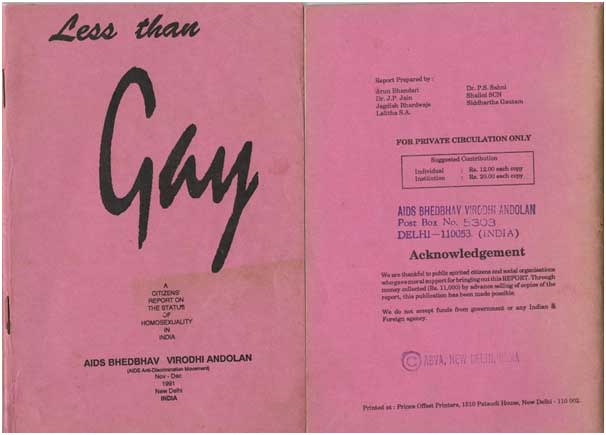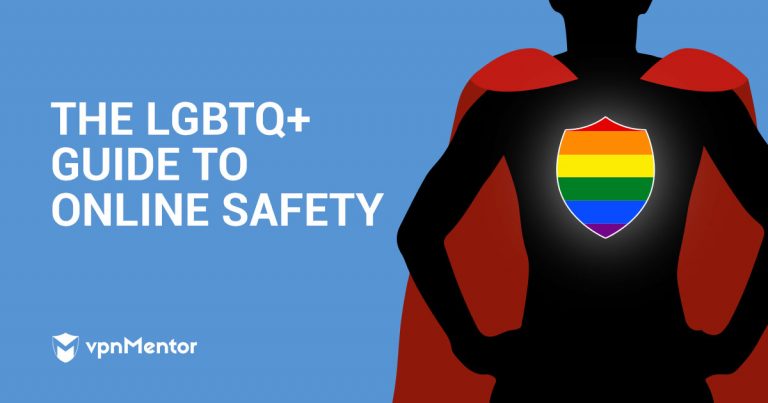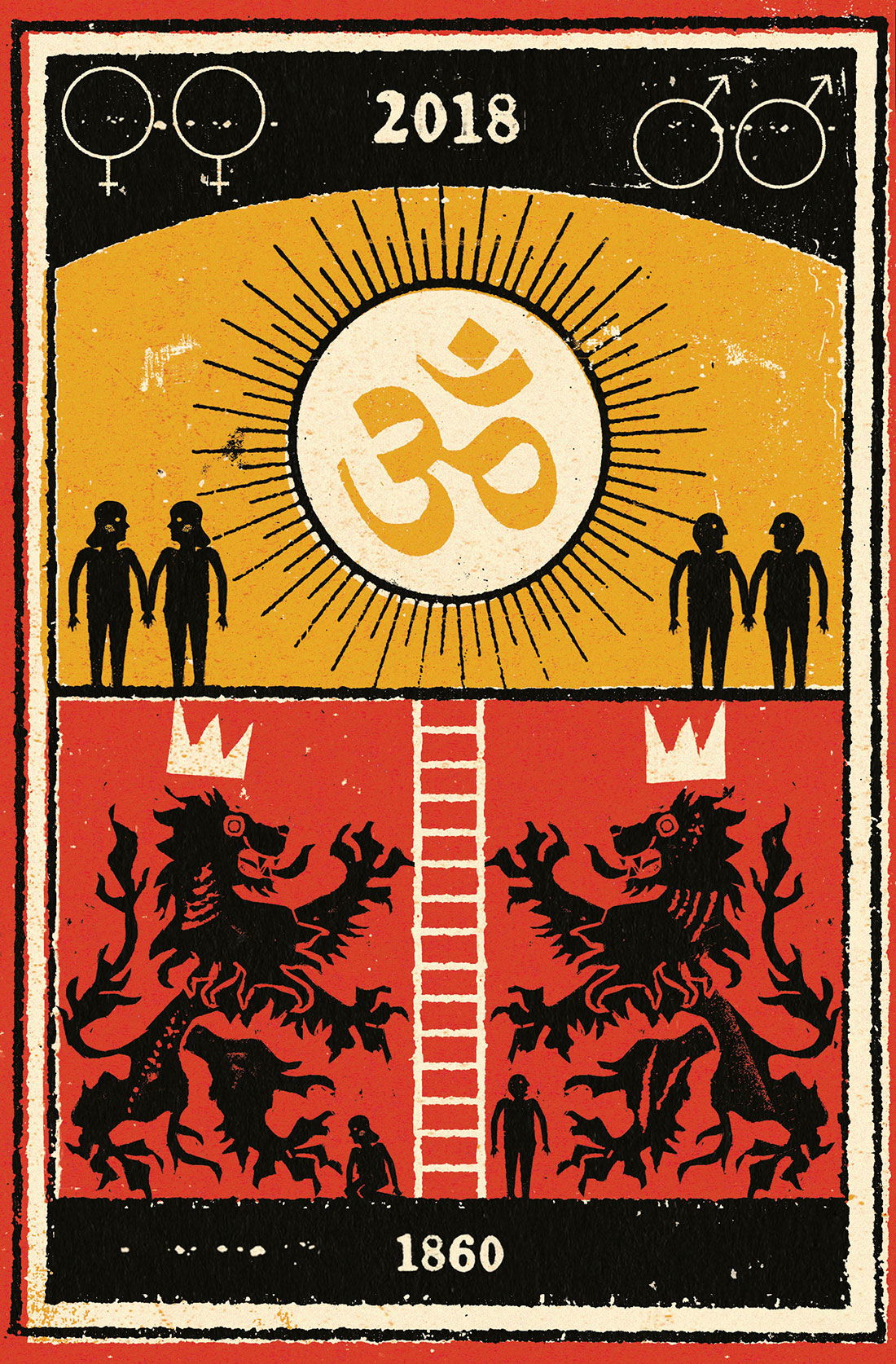
It has been brought to our notice that the official website of LGBT Studies, Yale University states that the Brudner prize 2019-20 is being awarded posthumously to Siddhartha Gautam(SG) for his invaluable contribution to the LGBT struggle in India. SG joined AIDS Bhedbhav Virodhi Andolan (ABVA) briefly for about two years and worked with six other co-authors of Less than Gay: A citizens’ report on the status of homosexuality in India (brought out by ABVA in 1991).
Since the Yale University authorities have neither communicated with ABVA and nor have apparently gone through the official blog of ABVA at: http://aidsbhedbhavvirodhiandolan.blogspot.com/, we would request you to go through the same. It may be mentioned that right since its inception three decades back ABVA has been a non-funded, non-party organization; that none of its members were permitted to avail of sponsored trips abroad; nor to be recipient of any awards. Funds from foreign and government sources were a taboo for ABVA members. ABVA never made money out of commercial publication of its literature. Our reports were sold on no profit, no loss basis; and were always self-published. Those joining ABVA even for a few years were made aware of these principles.
Right at the onset we urge you to scrap Brudner Prize 2019 for the following reasons:
- SG worked with ABVA for a very brief time, around 2 years. Even during this period he was in and out of Delhi and in and out of India for various reasons.
- Like all ABVA members SG too had not come out openly about his sexuality. When the report, Less than Gay was released at the Press Club of India of India on 22 November, 1991 SG had consciously recused himself and it was left to other ABVA members to address the Press Conference.
- The report Lessthan Gay was a collective effort of not just seven co-authors but all other ABVA members. Giving an award to one of the co-authors is stealing, hijacking and subverting the collective work of ABVA. The Committee for LGBT Studies at Yale University which bestows this annual prize does not have the faintest idea of what collective work is; or for that matter the culture of work at ABVA over the last 30 years. No ABVA member has ever accepted any award for work done in the collective. So you are setting a new low through your unilateral action in announcing this award. If you had contacted us earlier with a sufficient notice we would have explained the position to you.
- SG died in January 1992 within eight weeks of this report being released.
- SG had not participated in any protest action on LGBT issue organized by ABVA.
- The petition for repeal of Section 377, IPC in Delhi High Court was filed in 1994 and SG obviously had no role in this contrary to what is being alluded to on your website.
- The petition sent to Parliament in 1991 when Lessthan Gay was released was drafted by another ABVA member who had over ten years of activist experience of petitioning in Parliament. In fact at that time approaching the judiciary was not in anyone’s mind.
- Is it ethical, just, fair and intellectually honest to single out one person out of seven co-authors of Less than Gay for the Brudner Prize? The question is of academic importance only since ABVA is against all establishment awards. For us at ABVA the work itself is rewarding.
- If SG had been alive he would have sued your pants off if you had dared to subvert the work of ABVA – the way you have done in the instant case.
If you care to read the following you would know that a coterie/vested interest came into existence immediately after his death – like vultures descending on a corpse – to disseminate falsehood about the authorship of Less than Gay in spite of the fact that all the seven names of the co-authors were in the book. This shows the sheer audacity and the game plan of these unscrupulous persons. All the ABVA members – 18 to 24 – were extremely pained, traumatized and felt sorry for SG who was an upright ABVA member. (No ABVA member living or dead was part of the coterie/vested interest.)
Just have a look at what Siddharth Dube, a onetime scholar-in-residence at Yale University’s Centre for Interdisciplinary Research on AIDS wrote in his book ‘No One Else’ (2015).
- There is a reference to the undersigned (Dr. P. S. Sahni) as being the force behind ABVA. (page 192)
- Again SG has been referred to as the driving force. (pages 207& 266)
- There is a mention of the power of what SG had set in motion through Less than Gay whichsoon became potently evident. (page 207)
- A reference is made to the astounding scope of what SG eventually set into motion. (page 190)
We immediately sent a letter to Siddharth Dube stating interalia:
“The ABVA collective sees each and every member of the collective, each and every person in the ‘high-risk group’ amongst whom we work and everyone who supported the collective’s movement as the driving force. Referring to one or two persons as the driving force is unfair to ABVA members, some of whom are dead and who have contributed up to two and a half decades of their life in this work and continue to do so.”
The full details of the aberrations and the presumptuousness of the author may be gauzed in the letter sent to Dube by ABVA. See link: http://aidsbhedbhavvirodhiandolan.blogspot.com/2016/01/abvas-email-to-siddharth-dube-on-his.html
Legal notice was served on the author of ‘No One Else’ and Harper Collins Publishers India.
Right at its inception ABVA had decided to bring out a series of reports on the so called high risk groups viz women in prostitution, professional blood donors, drug abusers, homosexual persons. So the report on homosexuality Less than Gay was a natural corollary to this. Less than Gay would have got written with or without SG like all other ABVA reports totaling eleven in number (including two in Hindi). For details of ABVA’s work and reports please see:http://aidsbhedbhavvirodhiandolan.blogspot.com/2015/02/about-aids-bhedbhav-virodhi-andolan-abva.html
To recapitulate, SG was out of India when a seven-page hand written blue print of the report Less than Gay was drafted by an ABVA member who walked from his residence – out of sheer excitement and to save money – to discuss it with another ABVA member residing seven kms away! This contained outline of the chapters to be included as also the part ‘Why this Report’. The protocol followed was adopted from our earlier citizens’ reports/ fact finding reports published prior to 1988.
Neither Honest, Nor Wise
Decades of our work at ABVA was sought to be subverted and our reputation tarnished through an article published in The Hindu on 15 July, 2018. We decided to fight back and filed a complaint at the Press Council of India (PCI). The decision on our complaint was passed on 29.05.2019 by the PCI whose present Chairman is Justice Chandramauli Kumar Prasad, a former judge of the Supreme Court of India.
The Inquiry Committee heard Ms. Shobha Agarwal, the complainant and Mr. S. Ramanujam for the respondent. The complainant had alleged that the petition challenging the Constitutional validity of Section 377, IPC was filed by ABVA through its member, Ms. Shobha Agarwal, Advocate. It was pointed out that SG died in the year 1992 and the petition was filed in the year 1994 and therefore, the impugned story stating that SG filed the PIL was wrong. The PCI held:
“All those, who write, are bound to make mistakes and for that purpose one keeps erasers but erasers are kept by those who are willing to correct their mistakes. In the opinion of the Inquiry Committee, the editor of “The Hindu” has forgotten this basic principle and without any justification is unwilling to publish the correction in the print edition of the newspaper. Those who say sorry, when they are wrong are honest, those who say sorry when in doubt are wise. In the opinion of the Inquiry Committee, the respondent editor is neither honest nor wise.”
Full judgement of the Press Council of India may be read at the following link:https://countercurrents.org/2019/06/press-council-of-india-censures-the-hindu-terms-its-theneditor-neither-honest-nor-wise-on-complaint-by-aids-bhedbhav-virodhi-andolan
It is also available on the official website of PCI.
Since 2005 onwards a pan India NGO, SAATHII was instrumental in organizing SG Film Festival for about a decade and the literature brought out made patently false and erroneous statements undermining the collective work of ABVA. ABVA sent a communication to the NGO tabulating the statements carried in their literature and factually correct position. Two of the examples are given below:
| Wrong statement in SAATHII’s literature | The factually correct position |
| ABVA also initiated a petition campaign that helped prevent the passing of the draconian AIDS (Prevention) Bill of 1989. Siddhartha’s work as a lawyer in New Delhi strengthened these efforts. | The said petition campaign was initiated much before S.G. became a lawyer. ABVA had members who had a decade’s experience of using parliamentary techniques; their expertise was valuable. |
| Siddhartha also worked with ABVA to publish a series of well-researched reports on the status of other vulnerable groups of people like women in prostitution, professional blood donors and drug dependents, … | ABVA’s report titled Women And AIDS – Denial and Blame was authored by ten members including S.G. Another report titled Blood of the Professional was authored by just one member, JagdishBhardwaje. The report on drug dependents titled This Sugar is Bitter was conceived and brought out much after S.G.’s death! |
The NGO was asked to urgently rectify the mistake which was belatedly done.
The full content of the communication may be seen at:
These are just a few of the attempts by vested interests to subvert the collective work of ABVA; hijacking the work of the collective in the name of SG are condemnable and criminal. This is a blatant violation of ABVA’s intellectual property rights.
You would recall that on May19, 2011 Mr. Didier Eribon had written a letter to John Treat and the members of the Brudner Prize committee at Yale University. We quote:
“With great regret, I am writing to you in order to ask you to withdraw my name from the list of the recipients of the Brudner Prize.
I was greatly honored to be awarded the Brudner Prize in 2008, and proud to see my name included on this highly prestigious list of prominent scholars and activists.
But I’ve just learned that this year’s prize has been given to someone whose last book (David Halperin, What Do Gay Men Want?) shamefully plagiarized my work (a fact that I made public in 2009, and that many reviews of the French translation of the book in question have also made clear).
I wish to register my protest against this choice of yours, which is an offence not only to me, but also to academic, intellectual, political and ethical standards.”
So Yale University has a record of awarding the Brudner Prize to someone who stole another’s work/ intellectual framework/ way of thinking.
ABVA demands Yale University authorities to forthwith:
- Scrap Brudner Prize 2019
- Remove all references to Less than Gay including its cover page from its website(s). The report is available only for educational and non-commercial purposes – certainly not to be used as an advertisement for awards, funding etc.
- Make available to us all the material (as also names of members of the Brudner Prize committee) on the basis of which it was decided to award Brudner Prize 2019 to SG without as much as even informing – forget consulting – the parent organization ABVA.
In the event of Yale University continuing with its unilateral course of action, ABVA will be forced to resort to all methods of redressal including legal ones the responsibility for which would rest entirely on you. Needless to say that you are forcing ABVA to ensure that SG’s name is removed from the records of ABVA posthumously.
Last but not the least Yale University LGBT studies website has spelt our dear ABVA member Siddhartha as Siddartha at one place; and ABVA as ABBVA; likewise the full form of acronym is wrongly mentioned. It shows the level of your research standards. Of course Yale University would be appalled if one were to mention it as Yell University!
Thank you and waiting for acknowledgement, urgent action and response.
Yours sincerely,
Dr. P. S. Sahni
On behalf of ABVA collective
AIDS BhedbhavVirodhiAndolan (AIDS Anti-Discrimination Movement)
Email: aidsbhedbhavvirodhiandolan@gmail.com

